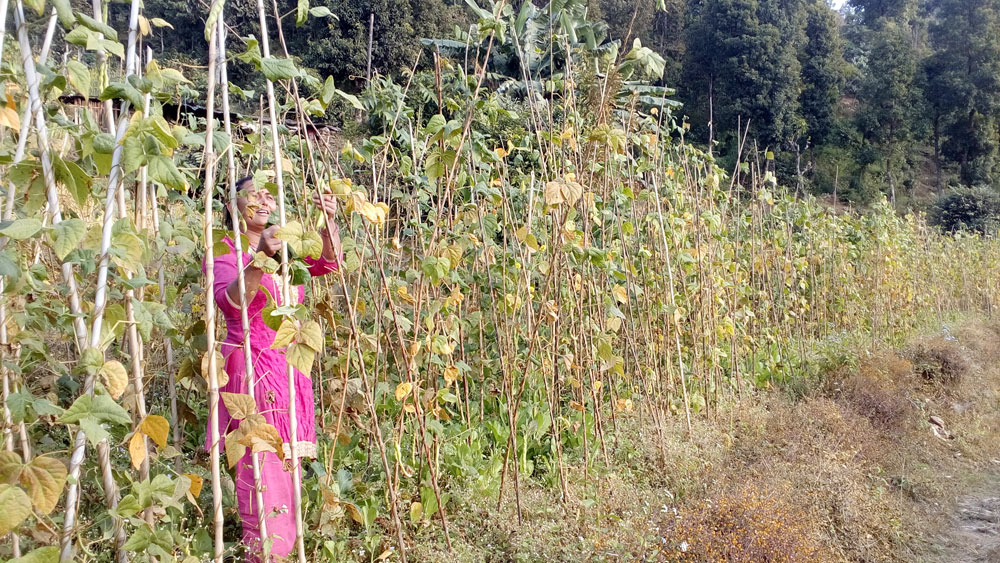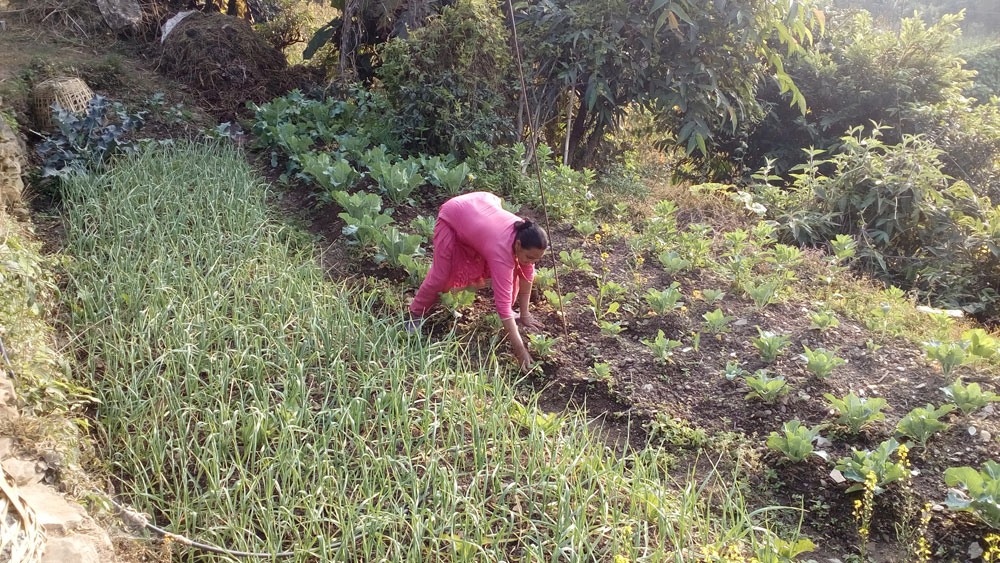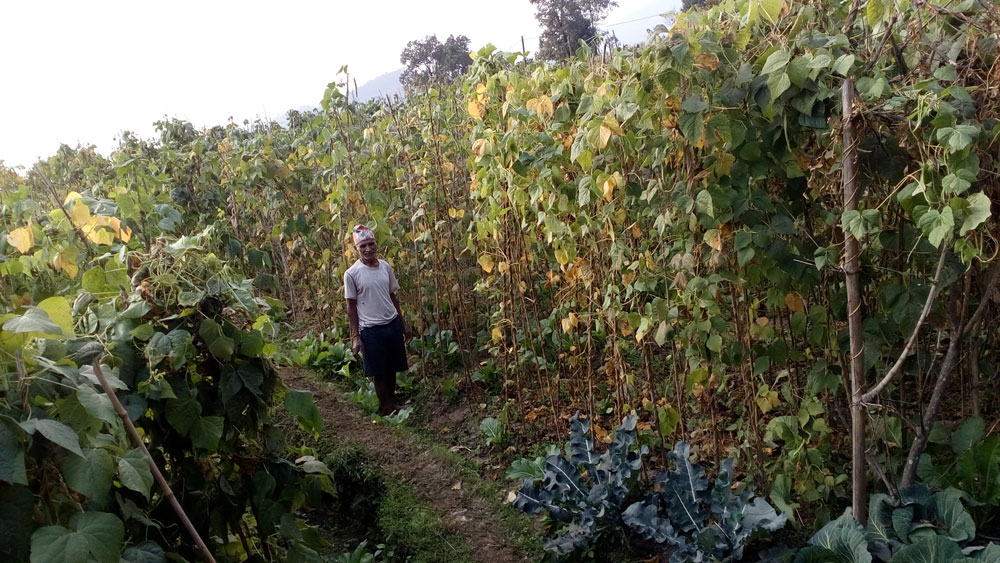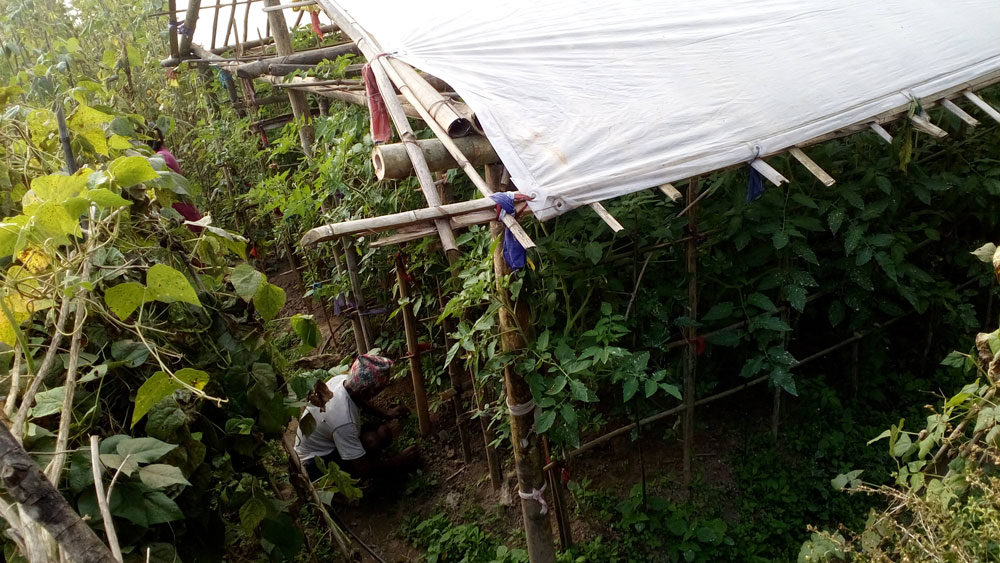March 2, 2019
The Water, Sanitation and Hygiene (WaSH) project in the Kalika community of the Kaski district is one of the largest projects of the Unica foundation that includes both instructional and constructional components. The instructional activities were executed through a series of trainings, workshops, orientations into capacity development, hygiene and sanitation promotion and income generation. The instructional activities were aimed at supporting the project in the long run by strengthening the socio-economic status of the community. The constructional activities were mainly focused on building a safe water supply. The idea behind these activities is to provide the community with income-generating skills to keep themselves financially and socially independent. This article will offer some insights on the impact of the beneficiaries’ revenue-generating vegetable farming activities.
Basic kitchen gardening
Sita Raivat, a 40-year-old woman, participated in the training ‘Basic kitchen gardening’ about two years ago. She has a cultivated land area of 3561.04 square meters. After she finished the training, Nepal Red Cross Society (NRCS) Kaski, the implementing partner of the project, supported her with 10,000 Nepalese Rupee (NPR) to start bean farming by herself.
In two months she produced 2,500 kg of beans. The market price of the beans was 40 NPR per kg, which resulted into a total income of 100,000 NPR. She also sold 15 kg of seeds at a rate of 500 NPR/kg. Besides the bean cultivation, she has also grown 100 cauliflowers, 100 cabbages, 50 broccolis and 2 kg of garlic in her fields. This gives her an additional income.
Her newly acquired income now helps her to live at ease. She can feed her family of four and also manages to earn enough to pay for the private school of her two children. Through the income-generating skills and the seed money from the NRCS Kaski, all income problems can be managed by cultivating the land. No other income is needed anymore.
Own tillage
Khagnath Tripathi, a 71-year-old man, participated in a similar training and also received the seed fund of 10,000 NPR to start his own tillage. He has a cultivated land area of 2034.96 square meters.
In two months, he produced 1,000 kg of beans. The market price of the beans was 40 NPR/kg, thus he earned a total of 40,000 NPR. He also sold 7 kg of seeds at a rate of 500 NPR/kg. In addition to the bean cultivation, he has also grown tomatoes. These tomatoes give him an extra income.
With his new income of bean and tomatoes, he runs a family of eight members and supports the education of two children. Like Sita Raivat, he has no other source of income but vegetable farming.
Kalika WaSH
The Kalika WaSH project is about to be completed. All instructional activities were already completed halfway through the project. The goal behind developing the concept of income generation activities seems to be beneficial for the sustainability of the project. However, one of the limitations was, that the income generating part was only a small component of the activities and could not be provided to the entire number of beneficiaries of the project.













